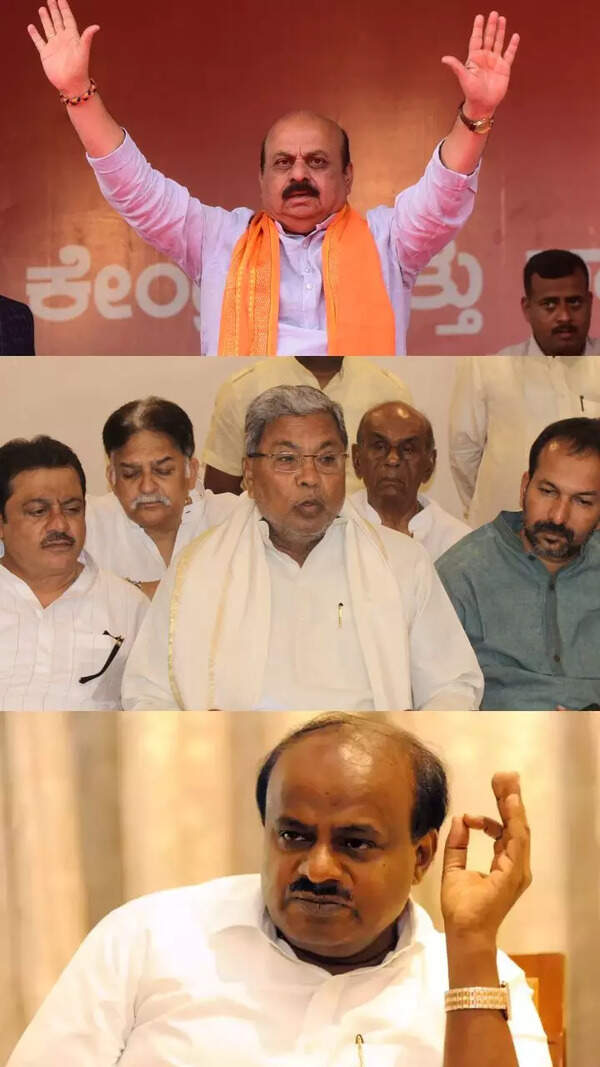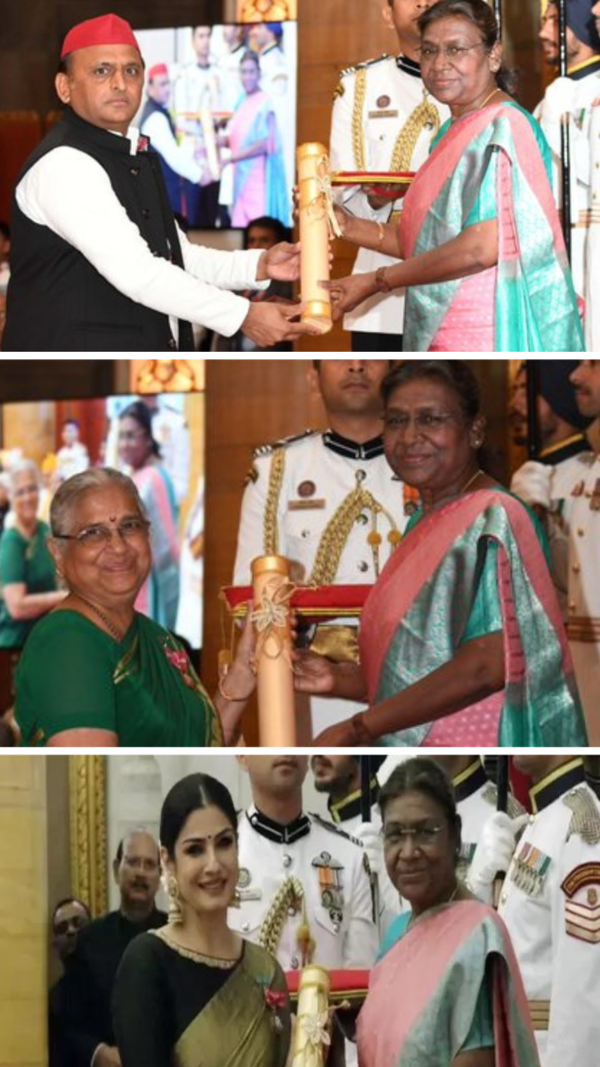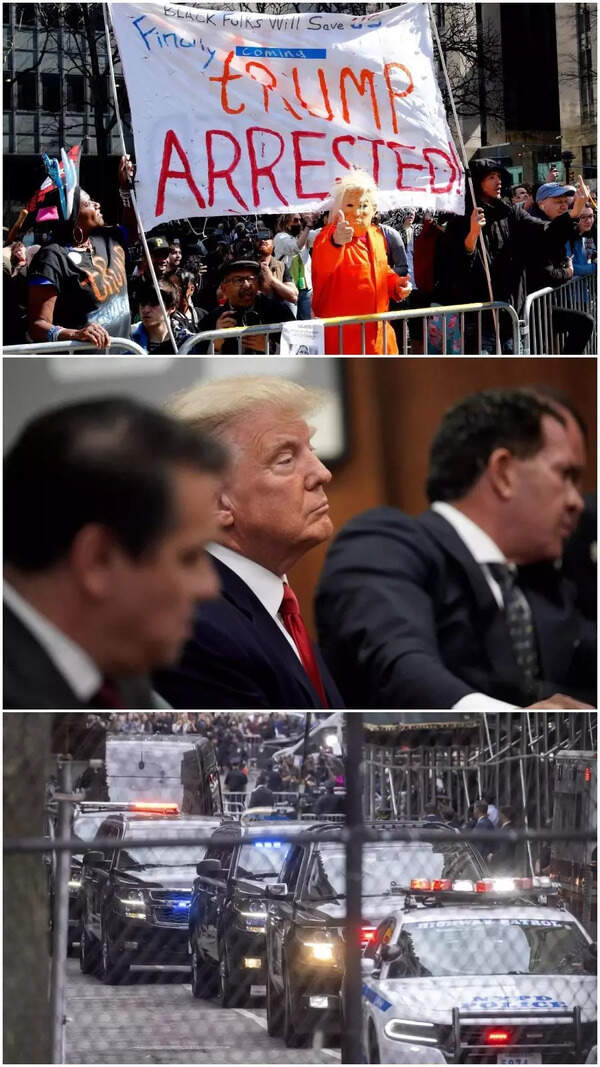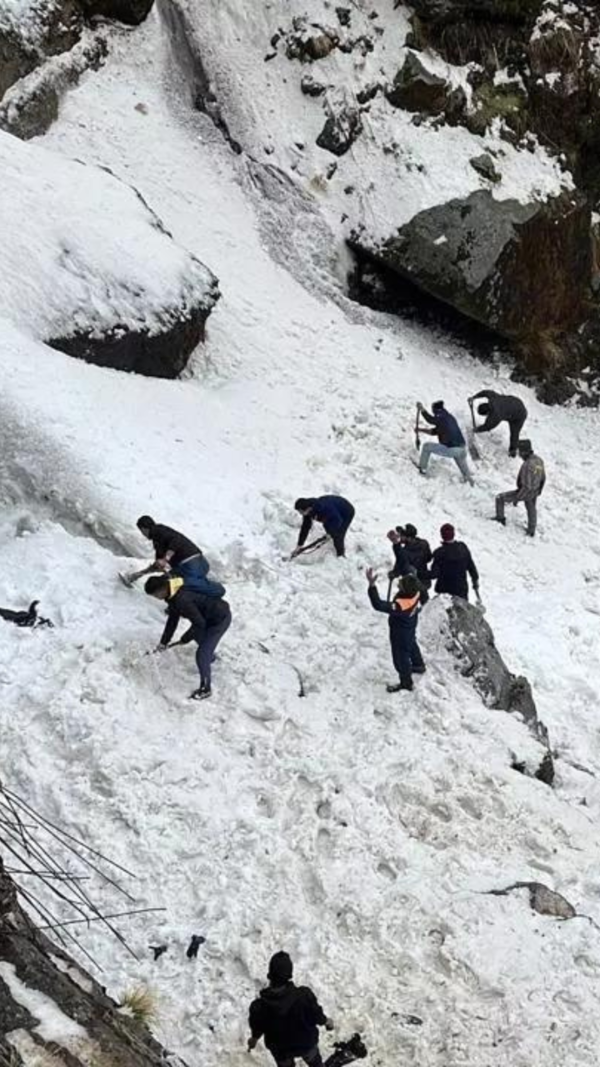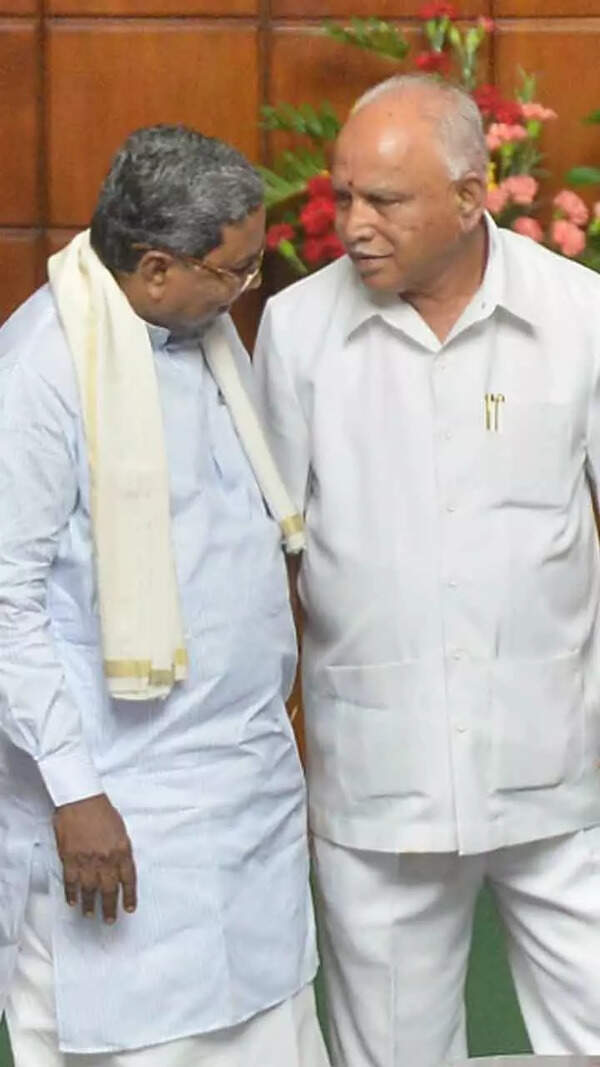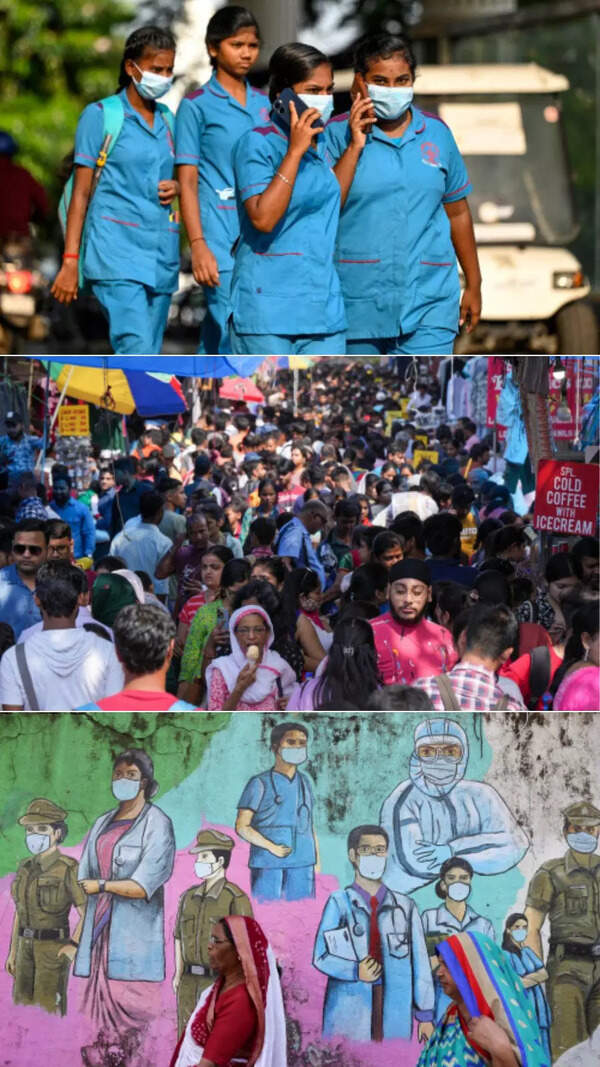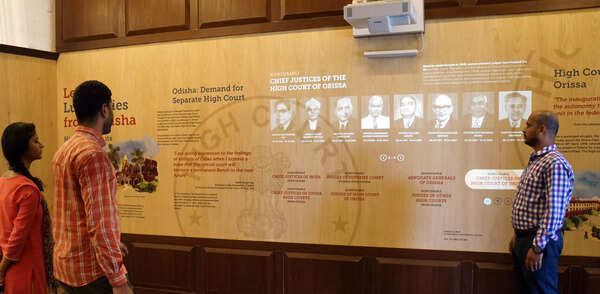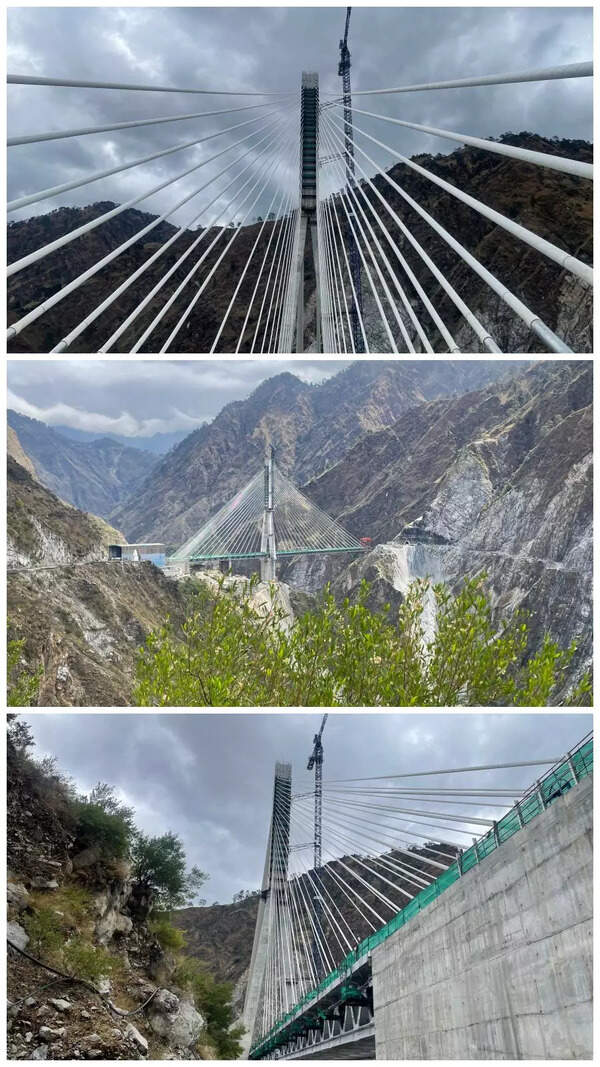- News
- India News
- 'Modi surname' defamation case: Surat court to pronounce verdict on Rahul Gandhi's appeal against conviction on April 20
Trending Topics
'Modi surname' defamation case: Surat court to pronounce verdict on Rahul Gandhi's appeal against conviction on April 20
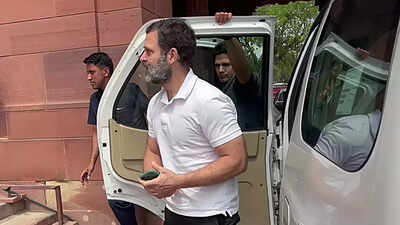
NEW DELHI: A Surat sessions court will pronounce its verdict on Rahul Gandhi's appeal to stay his conviction in the 'Modi surname' defamation case on April 20.
On Thursday, court of Additional Sessions Judge R P Mogera heard arguments of both sides and then reserved its verdict for April 20.
Rahul was sentenced to two years in jail by a court of metropolitan magistrate in Surat on March 23. The court had held him guilty for his remark "How come all thieves have Modi as the common surname" which was made during an election rally on April 13, 2019.

Following his conviction, Rahul was disqualified as member of Parliament from Lok Sabha. He was also served notice to vacate his official bungalow in the national capital.
Rahul had filed an appeal calling his conviction as "erroneous" and patently perverse. His lawyers argued that the trial was "not fair" and there was no need for maximum punishment in the case.
BJP MLA Purnesh Modi who is the complainant in the case has opposed Rahul Gandhi's plea for a stay on conviction saying the Congress leader is a "repetitive offender" who is in the habit of making defamatory statements.
Arguing for Rahul, senior advocate R S Cheema told the judge that the trial was not "fair". The judgement by the magistrate was "strange" because the trial court judge "made a hotchpotch of all the evidence on record", Cheema said. "It was not a fair trial. The entire case was based on electronic evidence, wherein I made a speech during elections and a person sitting 100 km away filed a complaint after watching that in the news ... There was no need for maximum punishment in this case," argued Cheema.
He also said that Gandhi's unconditional apology to the Supreme Court (in Rafale contempt case) was wrongly attached with this case by the complainant.
Arguing against Gandhi's plea for a stay on conviction, Purnesh Modi's lawyer Harshit Toliya said his client felt offended because Rahul had tried to defame all people with Modi surname through his remarks.
"He (Gandhi) was the president of the second largest party at the time of making the speech. His speech made a huge impact on the people of India and he also tried to sensationalise his speech," said Toliya.
"In his speech, Rahul Gandhi spoke about Prime Minister Narendra Modi. But he didn't stop there and went beyond it. He then said "Saare choron ke naam Modi hi kyu hai? Dhoondho aur bhi Modi milenge (Why are all thieves have Modi surname? If you search, you will find more such Modis). My client was hurt by this part of the speech and thus the complaint," Toliya added.
He informed the court that Rahul Gandhi had refused to apologise for his remarks.
Toliya said that Rahuul is facing similar defamation cases in the country and he is making such defamatory statements despite tendering an unconditional apology in the Supreme Court in the past (in the Rafale case).
Responding to Cheema's argument about the jurisdiction (as Gandhi had made the speech in Karnataka), Toliya said although no objection was raised earlier during the trial before the magistrate, the issue was being raised now.
On Thursday, court of Additional Sessions Judge R P Mogera heard arguments of both sides and then reserved its verdict for April 20.
Rahul was sentenced to two years in jail by a court of metropolitan magistrate in Surat on March 23. The court had held him guilty for his remark "How come all thieves have Modi as the common surname" which was made during an election rally on April 13, 2019.

01:19
Defamation case: What Rahul Gandhi's lawyer told the Surat sessions court while seeking stay on conviction
Following his conviction, Rahul was disqualified as member of Parliament from Lok Sabha. He was also served notice to vacate his official bungalow in the national capital.
Rahul had filed an appeal calling his conviction as "erroneous" and patently perverse. His lawyers argued that the trial was "not fair" and there was no need for maximum punishment in the case.
BJP MLA Purnesh Modi who is the complainant in the case has opposed Rahul Gandhi's plea for a stay on conviction saying the Congress leader is a "repetitive offender" who is in the habit of making defamatory statements.
Arguing for Rahul, senior advocate R S Cheema told the judge that the trial was not "fair". The judgement by the magistrate was "strange" because the trial court judge "made a hotchpotch of all the evidence on record", Cheema said. "It was not a fair trial. The entire case was based on electronic evidence, wherein I made a speech during elections and a person sitting 100 km away filed a complaint after watching that in the news ... There was no need for maximum punishment in this case," argued Cheema.
He also said that Gandhi's unconditional apology to the Supreme Court (in Rafale contempt case) was wrongly attached with this case by the complainant.
Arguing against Gandhi's plea for a stay on conviction, Purnesh Modi's lawyer Harshit Toliya said his client felt offended because Rahul had tried to defame all people with Modi surname through his remarks.
"He (Gandhi) was the president of the second largest party at the time of making the speech. His speech made a huge impact on the people of India and he also tried to sensationalise his speech," said Toliya.
"In his speech, Rahul Gandhi spoke about Prime Minister Narendra Modi. But he didn't stop there and went beyond it. He then said "Saare choron ke naam Modi hi kyu hai? Dhoondho aur bhi Modi milenge (Why are all thieves have Modi surname? If you search, you will find more such Modis). My client was hurt by this part of the speech and thus the complaint," Toliya added.
He informed the court that Rahul Gandhi had refused to apologise for his remarks.
Toliya said that Rahuul is facing similar defamation cases in the country and he is making such defamatory statements despite tendering an unconditional apology in the Supreme Court in the past (in the Rafale case).
Responding to Cheema's argument about the jurisdiction (as Gandhi had made the speech in Karnataka), Toliya said although no objection was raised earlier during the trial before the magistrate, the issue was being raised now.
Start a Conversation
FOLLOW US ON SOCIAL MEDIA
FacebookTwitterInstagramKOO APPYOUTUBE

